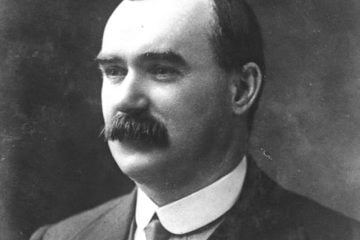
It is incumbent upon every revolutionary to fight against the privatisation of publicly-owned services, and to agitate for further nationalisation. Thomas Soud of the Warwick Marxists explains why.
The ongoing dispute between the RMT and Southern Railways ‒ coupled with Jeremy Corbyn’s proposal to place British rail services, water and utility companies back under public ownership ‒ has reignited public enthusiasm for re-nationalisation of these services. Since the end of the social-democratic postwar consensus, successive British governments have sold off more and more vital services and industries to private companies, who are only interested in exploiting them for profit. Under the crisis of capitalism, with the state desperate to reduce public spending, this process has only intensified.
Nationalisation in itself is not a revolutionary demand, but it is elementary that Marxists defend the continuing public ownership of essential services like healthcare and education (the latter of which academisation aims to privatise by the back door), as well as calling for the re-nationalisation of railways and utilities. However, we must also go further in agitating for public control of the finance sector, and Britain’s richest monopolies and big businesses ‒ in short, the commanding heights of the economy.
There are several reasons why revolutionaries advocate nationalisation. Firstly, it is an important transitional demand that serves as a bridge to more radical objectives under a pre-revolutionary and revolutionary situation. Rather than seeing the necessity of revolution in the abstract, the working class learns from its experiences, and Marxists must take up its day-to-day struggles and frustrations as the starting point for our work.
For example, YouGov data clearly indicate that the public is sick and tired of private bosses’ incompetent management of the railways, with 58% of respondents in favour of re-nationalisation ‒ many of them Tory voters! This is hardly surprising, given that the necessity of maximising profits has led capitalist rail bosses to cut costs and boost fares, resulting in an inferior service at inflated expense to the public, with the price of tickets rising by an average of 2.3% in 2017. On top of that, privatisation has been more costly to the public purse than when the railways were state owned, with government subsidies for private companies amounting to £5.4bn per year between 2005 and 2010.
Moreover, the NHS has gradually been opened up to private interests following the 2012 Health and Social Care Act, which allowed NHS services to be contracted out to “any qualified provider”, including private companies. In 2015, private firms won 40% of all NHS contracts, amounting to £3.5bn. In order to ease the process of carving up our health services for privateering vultures like Virgin Healthcare, the Tories have waged an economic war on the NHS to make it appear as though public ownership is failing, and so justify the increasing encroachment of private business interests.
In fact, this idea has failed miserably: 84% of the public believes the NHS should remain under state ownership. Nevertheless, the Tories’ campaign of cuts has resulted in a humanitarian crisis in our health service, with hospitals shuttered, wards overflooded, bursaries for trainee nurses and midwives scrapped and medics dangerously overworked. At this rate, the NHS might collapse whether we like it or not, and private companies are all-too-eager to bid for the wreckage.
In sum, there is fertile ground for raising the issue of public ownership (and opposing further privatisation) given the catastrophic failures of private, for-profit, capitalist management of essential services. Agitating on this question can thus find broad appeal amongst the masses. Moreover, Tory attacks on the NHS and the education sector, aimed at softening these services up for privatisation, has had the effect of radicalising workers in these sectors and pushing their mass organisations towards industrial action.
We have seen as much in the junior doctors’ dispute, and the Royal College of Nursing (RCN) recently announced its intention to hold an indicative ballot for strike action amongst its members. By vociferously opposing privatisation and linking the issue to the underlying crisis of capitalism, we can gain the ear of freshly-radicalised workers and win them to our cause.
Secondly, nationalisation partially realises one requirement of socialism, namely: a rationally managed economy under the democratic control of the working class. At present, there is around £850bn of un-invested capital sitting in the coffers of the largest British banks and big businesses, whose capitalist owners simply hoard their spoils while the rest of us endure austerity. If these companies were nationalised by the state and managed democratically, this wealth could be used to create affordable homes, raise the minimum wage, provide free, high-quality education and furnish the public with ample public-transport, gas and electricity.
Nationalisation alone would not result in such democratic management, because the working class does not control the state, which at present represents capitalist interests. However, placing key services and utilities under public ownership is a prerequisite for establishing a planned economy. Moreover, by raising these (really quite reasonable) demands ‒ which are unachievable under capitalism in its crisis-ridden state ‒ the call for nationalisation can lead the masses to look beyond elementary, reformist policies like nationalisation towards the more radical demand of expropriation. This is how nationalisation can transform from a merely social-democratic to a revolutionary policy.
Bourgeois Liberals and reformists attempt to present the question of nationalisation in moralistic terms. Health, transport and education are public goods, should they not then be owned by the state: the ‘democratic’ representatives of the people? As such, nationalisation is treated in a similar vain to charities, social security and welfare: another avenue to help the less fortunate in society endure the injustices of capitalism.
The soft lefts miss the bigger picture on two fronts: firstly, they fail to see the material basis for austerity and privatisation, attributing it to ‘cruel’ and ‘greedy’ Tories callously rewarding their big businesses chums to the detriment of the public. Secondly, by failing to imagine a world beyond capitalism, they imagine limited nationalisation as a means of making it ‘nicer’.
However, even this reformist perspective is a luxury that the decaying capitalist system can no longer afford. The logic of austerity prevents governments from taking further expenses onto their books. Even if they wanted to, they have no way of forcing the capitalists to give up control of their property and are terrified of provoking them. Even Corbyn’s much-vaunted proposal to re-nationalise the railways simply involved giving the government priority in bidding for rail contracts when they come up for renewal.
This is where the reformist demand of nationalisation can transform into the revolutionary demand of expropriation. We say that ordinary workers should assume control of their workplaces and seize the wealth of their exploiters without compensation.
For as long as the relations to production remain unchanged, nationalisation will do limited good for the workers. If rather than the capitalist as an individual, the state as an institution continues to exploit the workers for the sake of profit, this is little better than private capitalism.
As Engels said: “the transformation into state ownership does not do away with the Capitalistic nature of productive forces”. Or as Trotsky more bluntly put it: “state ownership of the means of production does not turn manure into gold”. For instance, mass nationalisation under Clement Atlee’s Labour government saw no moves to democratise the work place. Government officials would sit with the bosses and in partnership decide upon how to exploit the workers. Even this limited form of nationalisation did however give the workers a stronger position for collective bargaining by uniting them all under one owner.
The experience of nationalisation under capitalism has proven the Marxists correct – that it is not possible to gradually transform and rationalise capitalism so that it begins to look like socialism, and that over time the profit hungry and crisis ridden capitalist system will undermine and privatise these very limited encroachments onto the market.
The working class’ experience of the last 30 years has been that of enduring the wreck of social democratic nationalisation, watching former conquests being continually broken up and sold off. Marxists must use this to show how there can be no return to the post-war reformism, that nationalisation within capitalism by itself is a dead end and must be transformed into revolutionary expropriation to establish a socialist economy.
Therefore, in this epoch of crisis, privatisation and deindustrialisation, the demand for nationalisation is more and more directly revolutionary in nature; or rather, raising it requires that we explain that the workers must take power and use nationalisation as a revolutionary measure to abolish capitalism once and for all.



